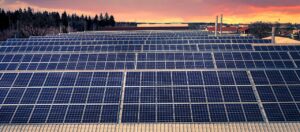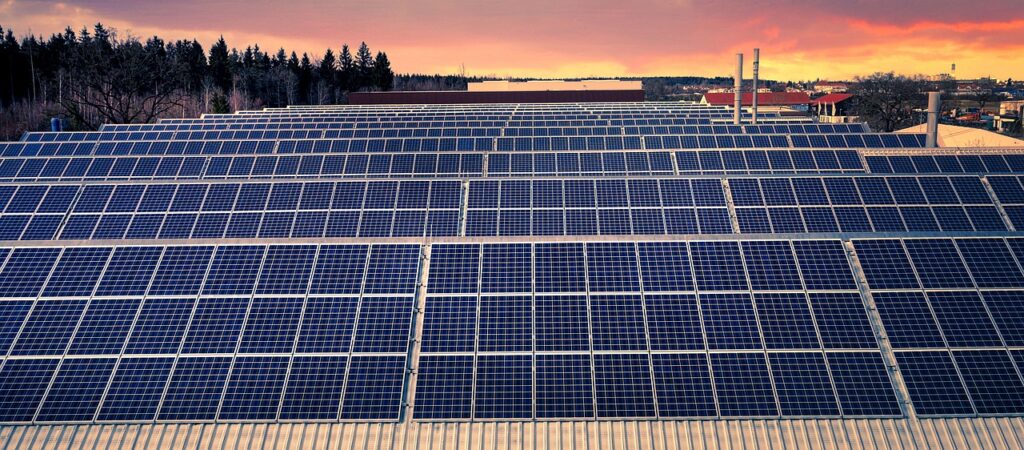Why is solar power better than nuclear power? The battle between solar and nuclear power is intriguing since they both share the essential characteristic of being carbon neutral. Solar power plants, operate without emitting greenhouse gases, which are the cause of global warming. Let’s Discover More Regarding Both Solar Energy and Nuclear Energy by seeing this topic.

Why is solar power better than nuclear power?
Until now, the main source of energy is fossil fuels. Fossil fuels are the primary cause of the global climate problem which appears to be getting worse every year. Since they have the potential to totally replace fossil fuels in the long term, alternatives to fossil fuels are constantly receiving attention.
Why is solar power better than nuclear power? Simply, nuclear energy and solar energy are the primary substitutes. Nuclear energy and solar energy both have specific benefits and drawbacks. Which is better is the ensuing query, and that is what this article’s fact-based discussion will address.
Nuclear energy vs wind energy
Many wonder about this question. Why is solar power better than nuclear power? Despite this, some would argue that this isn’t a fair comparison because wind power is diffuse and unpredictable.
News Articles FREQUENTLY MENTION that a Wind Turbine Being Constructed is “able to provide energy for 300 houses.” Such incomplete information gives the false impression that such power would be continually produced by a single turbine.
The idea of what wind power can power drastically changes when contracting to the annual megawatt-hour (MWH) amount that a nuclear reactor can provide. The numbers must first be seen to be fully understood.
Wind Turbines, Known as Wind Generators, Have Come to Represent Pure Power That Contains No Carbon. Wind and Solar Power Are Variable Electricity Generators, in Contrast to Other Renewable Energy Sources Like Hydroelectricity or Geothermal. Any given wind turbine will never generate at maximum capacity for a prolonged length of time since the wind does not always blow and the sun does not always shine.
Why is nuclear energy better than wind energy?
Nuclear energy is preferable to renewables in terms of reliability, greenhouse gas emissions, land use, and waste.
Nuclear power is far more reliable than renewable energy sources like wind and solar. Nuclear power plants continue to generate energy even when the sun isn’t shining, and the wind isn’t blowing.
Nuclear energy is among the cleanest sources of power. Recent studies indicated that the usage of natural resources and greenhouse gas emissions connected with nuclear power generation were comparable to those of renewable energy, according to a study published in the Journal of Cleaner Production.
According to a study by the European Commission, nuclear power emits about the same number of emissions as wind power over a full cycle of production. Other research has found that nuclear power may be even more environmentally friendly than solar.
Solar vs nuclear cost
Why is Solar power Better Than Nuclear power? Does the price have an effect? According to the asset management company, the cost of nuclear energy ranges between $ 6500 and 12,250 dollars per kilowatt on the facility scale, while the costs of solar energy are about $ 1,000.
Since solar energy is still generating carbon-free energy for the planet with a low-capacity factor, long-term nuclear energy advantages are not comparable to those that do not match solar energy at a reasonable price.
Investors need to invest in cost-effective products because cost efficiency is very important.
Of course, nations have not abandoned nuclear energy, which is very economical and effective (a very high-capacity factor).
In addition to being easier to build, solar energy also ends and operates quickly, and this is something that the world now needs to look at the deteriorating environment caused by greenhouse gas emissions.
The main justification for the continuous building of solar power plants is the effectiveness of solar energy in stopping climate change. Although the use of nuclear energy increased by 3.4 % in 2020, its total share of the world’s energy consumption remained at 10 %.
The percentage has not changed from 10 % 25 years ago. Nuclear energy made the last major contribution to global energy consumption in 1996 when it provided 17.5 % of it.
Similarities between solar and nuclear energy
Solar and nuclear energy share a lot of similarities. So, why is Solar power Better Than Nuclear power? The biggest benefit is that they don’t emit any pollutants or greenhouse gases, including carbon dioxide. For every 1 kW of electricity produced, nuclear and solar energy will save 1330 kg of carbon dioxide annually (Bosshard, 2006).
The primary distinction between these two processes is that the fusion involves joining two or more smaller atoms together, whereas fission involves dividing an atom into two or more smaller ones.
Why is Solar power Better Than Nuclear power debate?
Solar power is less risky than nuclear power. Nuclear power facilities must employ hazardous compounds like plutonium, but solar power uses something that is naturally produced by the sun.
Huge disasters may occur if procedures are not strictly. And cleaning up the material left over following a nuclear power plant accident can take years if not decades. Consider the Chornobyl catastrophe, for instance. This catastrophe resulted in several fatalities, had detrimental health repercussions, and took decades to even begin to contain. Naturally, using nuclear power requires a lot of caution.
Why is Solar power Better Than Nuclear power? Solar vs nuclear environmental impact
Solar energy may have a carbon footprint that is four times greater than nuclear power. Even so, it is far more environmentally friendly than coal and natural gas. If more people use it, energy-based emissions will be significantly reduced.
Nuclear vs solar cost per kWh
Why is Solar power Better Than Nuclear power? Utility-scale solar costs less than $1,000 per kilowatt (KW), but nuclear electricity costs between $6,500 and $12,250 per KW.
What is the global number of nuclear power plants?
If an average nuclear power station generates 1 gigawatt of energy per hour and an average solar panel generates 250 watts, then when both are running, the nuclear power plant generates as much energy as 4 million solar panels.
PAA
What is better than nuclear energy?
Solar power is better than nuclear energy.
Is Nuclear Fusion better than solar?
Because they are less dense energy sources than solar and wind, they will require a lot more raw material.
What energy is better than solar?
Since the sun and wind are not extremely dense energy sources, they’ll need far more raw resources.
Can solar produce more energy than nuclear?
Compared to nuclear power, which has a capacity factor of 92.5 percent, solar energy has a pitiful 24.9 percent.
What are 5 advantages of solar energy?
Five benefits of using solar energy at home.
- Solar panels are getting cheaper all the time.
- The second benefit of going solar is financial savings.
- Thirdly, you may keep the lights on if the grid is down.
- Adding solar energy to your home or business will usually increase its value.
- Solar systems work in a variety of climatic situations.
What are the top two benefits of solar energy?
Benefits of Solar Power:
- Carbon emissions are decreased by using solar energy, a sustainable energy source.
- The electricity expense for your home might be decreased with solar energy.

